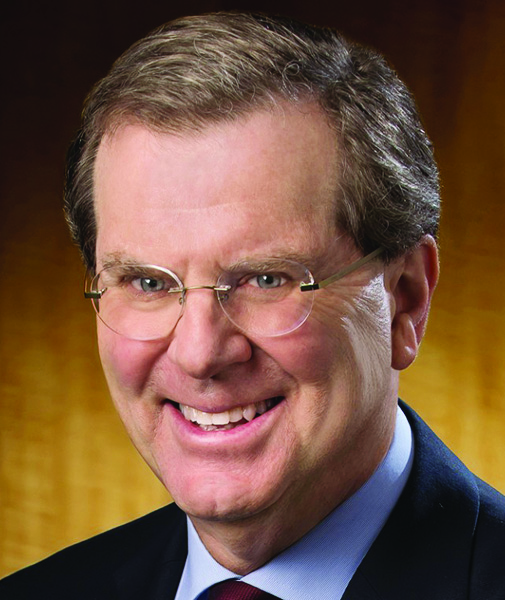This week, AJC CEO David Harris is in Athens, Greece, to speak at The Economist Annual Government Roundtable and to meet with government officials.
In advance of the visit, David was interviewed by Kathimerini, widely believed to be the most influential newspaper in Greece. Over the years, it has turned to him for op-eds and interviews. The most recent interview appeared on Sunday, July 3.
This interview was edited for length by The Chronicle.
Can you describe the progression of Greek-Israel relations during your long tenure as CEO of the American Jewish Committee?
It’s an amazing story. When I first became interested, in the early 1980s, in the potential of a Cyprus-Greece-Israel triangle, it seemed highly improbable, if not impossible. Cyprus saw its future largely in the Non-Aligned Movement, which was unfriendly territory for Israel. Greece hadn’t yet established full de jure relations with Israel, and was close to the PLO, Syria, and Libya. And Israel, seeing little opportunity in Nicosia and Athens, was largely focused on developing ties with Turkey. Fast forward 40 years, the triangle not only exists, but has become ever deeper and more strategic. The moral of this story: Never give up hope. It took longer than it should have, but the result is even more than we could possibly have imagined four decades ago.
From the past, let’s move to the present and the future of Greece-Israel relations, including the trilateral cooperation scheme with Cyprus. What is your view on the way forward?
I see a series of concentric circles. In the innermost, Greece, Cyprus, and Israel continue along the path of deeper and wider cooperation in just about every imaginable bilateral and trilateral sphere. They are driven by overlapping interests and values. In the next circle, the field is widened to include other countries in the East Med with important roles to play in such fields as energy. And then, longer term, bringing together the widening circle of peace in the Middle East and North Africa with the Cyprus-Greece-Israel triangle makes a lot of regional sense. Could all this lead to new multilateral configurations? Absolutely. And we have seen one already — the East Mediterranean Gas Forum, headquartered in Cairo.
Can you talk about the bonds and cooperation between the Jewish American and the Greek American Diaspora in the U.S. and beyond?
In a way, it’s precisely these bonds linking American Jews and Hellenic Americans that drove the initial process in the 1980s. We were friends here in the U.S. We had so much in common that it was often difficult to figure out who were the Jews and who were the Hellenes in any room. So why couldn’t these commonalities prevail in the East Med as well? Our faiths, traditions, and histories overlapped, and we were both at the heart of defining Western civilization as we know it. Surely, this should be the glue that binds us. And today, we can happily say that our cooperation extends across the U.S., across the Atlantic Ocean, and, yes, across the world.
How do you assess Turkey’s foreign policy actions, from the S-400s to its neutrality in the Ukraine war, to overflights over Greeks islands and lately even disputing their sovereignty?
Call it what you will — neo-Ottomanism, imperialism, political gamesmanship, or delusions of grandeur — but Erdogan’s Turkey is playing a dangerous game throughout the region. That’s why he must face costs or else he will persist. Bullies don’t understand weakness or hesitation. That only whets their appetite for more mischief.
Do you foresee a rapprochement between Israel and Turkey, under Erdogan or another leader? And if this happens, what would it mean for Greece, for Israel?
I hope one day Turkey will become a more responsible, predictable, and reliable partner, and that it will end the occupation in Cyprus and behave peacefully with Greece. That would be in everyone’s best interests, including, notably, Turkey’s. As the larger region moves ahead cooperatively in many fields, including energy, does Turkey wish to be sidelined? Meanwhile, Israel understandably seeks improved ties with Turkey, a traditional friend, but it won’t be at the expense of Cyprus and Greece, two democratic allies. Values are values, and they create the foundations for enduring bonds.
Finally, what would you like Greeks and Greek Americans to remember the most from your leadership of the AJC?
We never stopped dreaming, we never succumbed to the obstacles in our path, and we never took “no” for an answer when it came to overcoming decades of chill in the Cyprus-Greece-Israel links. And the prize was well worth the effort. Now it’s time to dream the next chapter and bring the same determination to the effort. Together, we can help build a brighter future for Hellenes and Jews alike, not to mention the East Med and beyond.



